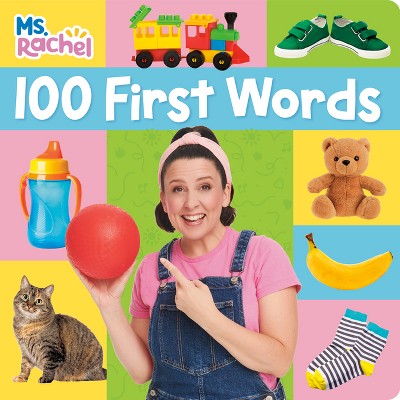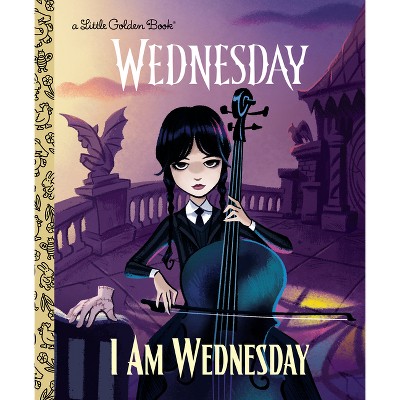Sponsored

Women Intellectuals and Leaders in the Middle Ages - by Kathryn Kerby-Fulton & Katie Ann-Marie Bugyis & John Van Engen (Hardcover)
In Stock
Sponsored
About this item
Highlights
- Medieval women were normally denied access to public educational institutions, and so also denied the gateways to most leadership positions.
- Author(s): Kathryn Kerby-Fulton & Katie Ann-Marie Bugyis & John Van Engen
- 436 Pages
- Literary Criticism, Medieval
Description
About the Book
Wide-ranging examination of women's achievements in and influence on many aspects of medieval culture.Book Synopsis
Medieval women were normally denied access to public educational institutions, and so also denied the gateways to most leadership positions. Modern scholars have therefore tended to study learned medieval women as simply anomalies, and women generally as victims.This volume, however, argues instead for a via media. Drawing upon manuscript and archival sources, scholars here show that more medieval women attained some form of learning than hitherto imagined, and that women with such legal, social or ecclesiastical knowledge also often exercised professional or communal leadership.
Bringing together contributors from the disciplines of literature, history and religion, this volume challenges several traditional views: firstly, the still-prevalent idea that women's intellectual accomplishments were limited to the Latin literate. It looks beyond the often-studied major Latin women writers and medieval queens, discussing how the language of learning as shifting at the time, and so, too, scholarly ideas of what constitutes intellectual accomplishment. The collection therefore engages heavily with vernacular writings (in Anglo-Saxon, Middle English, French, Dutch, German and Italian), and also with women's material culture, such as manuscript illumination, stained glass, fabric and jewelry. But in doing so, in the second challenge to traditional views, the contributors strive to avoid the equally problematic position that women's accomplishments were somehow limited to the vernacular and the material. So they examine women at work with the sacred languages of the three Abrahamic traditions, Latin, Arabic and Hebrew. Finally, this book argues against the notion that women were somehow more "original" for their lack of learning and and dependence on their mother tongue.
KATHRYN KERBY-FULTON is Professor Emerita, University of Notre Dame; JOHN VAN ENGEN is Professor Emeritus, University of Notre Dame; KATIE BUGYIS is Assistant Professor, University of Notre Dame.
Contributors: Asma Afsaruddin, Renate Blumenfeld-Kosinski, Amanda Bohne, Katie Ann-Marie Bugyis, Adrienne Williams Boyarin, Dyan Elliott, Thelma Fenster, Sean Field, Sarah Foot, Megan Hall, Ruth Mazzo Karras, Kathryn Kerby-Fulton, Rachel Koopmans, F. Thomas Luongo, Leanne MacDonald, Gary Macy, Maureen Miller, Barbara Newman, S.J. Pearce, Anna Siebach-Larsen, Gemma Simmonds, David Wallace, John Van Engen, Nicholas Watson, Jocelyn Wogan-Browne,
Review Quotes
Women Intellectuals and Leaders in the Middle Ages is an impressive volume of essays that ranges across academic disciplines, countries, time periods, and sources in order to contribute to key debates about women's history and role in intellectual life throughout the medieval period. The editors, Kathryn Kerby-Fulton, Katie Ann-Marie Bugyis, and John Van Engen, set out to "tak[e] early women intellectuals and leaders seriously," as the title of Kerby-Fulton's introduction puts it, and in this aim it absolutely succeeds.-- "Journal of British Studies"
Die Aktualität des Bandes resultiert aus der Verknüpfung von Bildung und Gelehrsamkeit ma. Frauen mit der Frage nach weiblicher 'agency' und Handlungsfeldern, die auf Patronage, Leitungskompetenz und kirchliche Funktionen sowie Führungsfunktionen in weltlichen Kontexten ausgerichtet sind.
(The relevance of this volume lies in its connection of medieval women's education and scholarship with questions of female 'agency' and spheres of activity, focusing on patronage, leadership skills, and ecclesiastical roles, as well as leadership functions in secular contexts.)-- "DEUTSCHEN ARCHIV"
It provides a clear path forward for scholars working at the intersections of gender, power, leadership, and the history of ideas to do so by reinscribing the historically occluded presence and influence of women in these areas of cultural influence and impact.-- "RELIGION & LITERATURE"
A revelation... Truly this book opened up vistas with new perspectives and possibilities for me. I recommend it highly.-- "STUDIES IN MEDIEVAL AND RENAISSANCE TEACHING (SMART)"
Offers a great variety of places, times and people, and encourages us to adopt new angles of view. It offers us a new perspective, in search of figures of women authors, thinkers, intellectuals. It is now impossible to claim that women did not participate in the cultural and intellectual environment of the Middle Ages.-- "CAHIERS DE CIVILISATION MÉDIÉVALE"
The readers will find it helpful to have the introductory sections focus on the wider methodological framework and scholarship for each of the approaches taken, while the didactic setup makes this book an ideal tool for teaching purposes. The overall introduction and epilogue are superb in setting the scene, warning of pitfalls, and identifying new avenues of research. Above all, they remind the reader that the women discussed in this volume constitute probably only the tip of an iceberg and for this reason they encourage us to continue digging in archives and libraries to identify more of them.-- "Church History"
The team of scholars who pulled this collection together have rendered us a great service. . . . Each contributor is a gifted and concise writer. Younger scholars will find much here to expand their own research and thinking; so will graduate students in many fields. The book is especially valuable in its modeling of effective collaboration among interdisciplinary fields.-- "Magistra"
Shipping details
Return details
Trending Poetry






Discover more options





